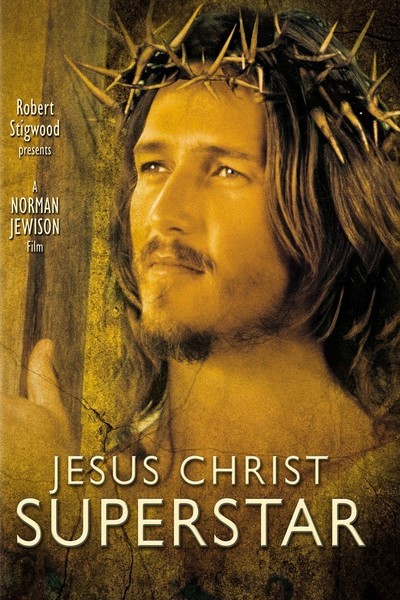Why it’s famous:
Jesus Christ Superstar holds a big place in theatre, as one of only two major Broadway musicals about Jesus Christ—the other being Godspell—and it’s definitely the bigger, more dramatic of the two. It also has some serious musical pedigree behind it—the music was written by Andrew Lloyd Webber, who also composed Joseph and the Technicolour Dreamcoat, Phantom of the Opera, Evita, and Cats. The show also offered a pretty unique view of Jesus for the time, in the early ‘70s.
Also, Jesus’s rock scream.
Why you haven’t seen it:
There are probably three reasons why you haven’t seen it: you dislike musicals, and when you heard that it had zero dialogue and was by the same guy who made Cats, you ran the other way; you don’t like hippies for whatever reason; or you’ve seen one too many milquetoast Christian movies (here’s looking at you, Heaven is for Real), and you’re skeptical of explicitly Christian entertainment.
Why it might be tough to get through:
While Superstar is far from usual Christian fare, it is still a musical about Jesus, the apostles, and Judas, and that can be uninteresting or off-putting to some people. It also lacks dialogue, which many find frustrating.
It also has an unusual premise—the movie is technically a bunch of hippies recreating Jesus’ last days, and that premise leads to some anachronisms, like tanks rolling through the desert or machine guns being sold at the market, which might be corny or strange to some viewers.
It’s also very 1973. The costumes, dancing, and music are dated for sure, and unless you are a big fan of music from that era, you might not be interested.
Why you should see it anyways:
Superstar is “the greatest story ever told” set to an amazing rock ‘n’ roll soundtrack. Every performance is powerful, with not a bad actor or singer in the cast. Songs like “I Don’t Know How to Love Him” became huge hits outside of the musical, while others, namely “Gethsemane,” feature some of the best singing Broadway has to offer.
The movie, filmed on location in Israel, focuses on a human Jesus, and Webber and lyricist Tim Rice create a convincing portrait of a man both out of his element and not in control of the situation. Divinity doesn’t really come into play—this is the story of a man doomed to die, and we all follow him, through one tremendous musical number after another, to the gruesome conclusion.
It also has a complex and sympathetic portrayal of Judas, played by Carl Anderson, who betrays Jesus because, as he says, “Jesus can’t control it like he did before/ And furthermore I know that Jesus thinks so too.”
Also, Jesus’ rock scream, again.
Best Songs
-“Everything’s Alright”: Yvonne Elliman shines as a loving Mary Magdalene, but it’s the theological debate that features prominently here—Judas is shown to sympathize much more with the poor than Jesus, who delivers the jarring, but powerful line: “there will be poor always, pathetically struggling.” It’s also the first hint of Ted Neeley’s (Jesus) powerful singing.
-“The Last Supper”/ “Gethsemane”: the emotional climax of the musical. Judas betrays Jesus amongst a flurry of high notes and emotive singing, while “Gethsemane” features Neeley’s singular rock scream as he resigns himself to his fate.
-“Superstar”: The groovy ending track, in which Judas attempts to understand why Jesus would have chosen to be born in Israel 2000 years ago instead of today.
Fun Facts
-Only Elliman and Barry Dennen (who plays Pontius Pilate) appear in both the original album and the film. Elliman later went on to have a successful disco career.
-Director Norman Jewison had directed the film version of the Broadway musical Fiddler on the Roof two years earlier.
-Most actors in this film are best-known for their role in this movie—few had big careers afterwards. Neeley is probably best known for reprising his role of Jesus in many other performances. Bob Bingham, who played Caiaphas, retired from show business shortly afterwards, and got a job as a manager at a zipper factory.





